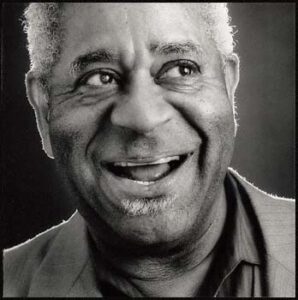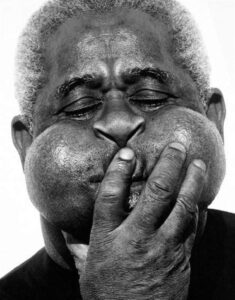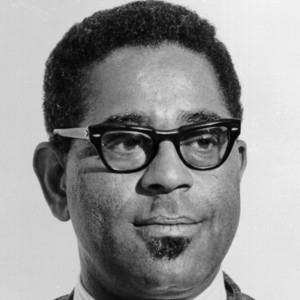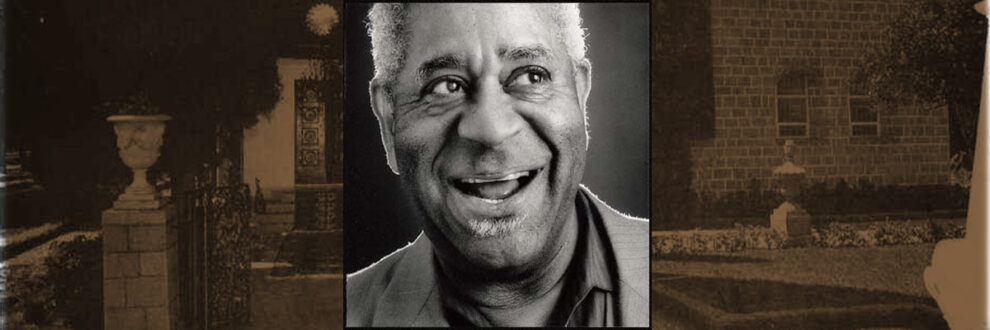 John Birks Gillespie aka Dizzy Gillespie
John Birks Gillespie aka Dizzy Gillespie
Born: October 21, 1917
Death: January 6, 1993
Place of Birth: Cheraw, South Carolina
Location of Death: Englewood, New Jersey
Burial Location: Flushing Cemetery, New York City, New York
Dizzy Gillespie, recognized as one of the greatest jazz musicians was born in 1917. He was a jazz trumpeter and composer, collaborating with the likes of Ella Fitzgerald, Charlie Parker, and Duke Ellington, to name a few.
He began his career when he moved to New York City in the mid-1930s performing in swing bands with the likes of Benny Carter and Charlie Barnet among others. Gillespie then started his own band and developed his own style of jazz known as “bepop,” which is used today.
Bepop is characterized by complex harmony and rhythms, fast tempos with an emphasis on improvisation in the performance. Gillespie is also recognized for introducing jazz to Afro-Cuban, Caribbean and Brazilian music.
 He treated music as a tool to bring racial unity, a main principal in the Baha’i Faith. He explained in an interview “I look at it like it’s one big master painting with all the instruments together. Now that’s represented by all the races like a humanitarian, that each one of us comes in, there’s green, there’s yellow, and a black and a red, each one of us are independent yet each one has to think unity first. Our music depends on rhythm and when we are not together rhythmically, we are out of it. I don’t care how the harmony sounds like. I believe that rhythm is the strongest thing in music because you can take rhythm, just plain rhythm and forget about the notes.”
He treated music as a tool to bring racial unity, a main principal in the Baha’i Faith. He explained in an interview “I look at it like it’s one big master painting with all the instruments together. Now that’s represented by all the races like a humanitarian, that each one of us comes in, there’s green, there’s yellow, and a black and a red, each one of us are independent yet each one has to think unity first. Our music depends on rhythm and when we are not together rhythmically, we are out of it. I don’t care how the harmony sounds like. I believe that rhythm is the strongest thing in music because you can take rhythm, just plain rhythm and forget about the notes.”
He traveled all over the world to promote racial unity, working with all sorts of different ethnic musicians and combined the unique musical styles to represent the possibilities of how humanity can prosper if we embrace our diversities.
Dizzy Gillespie recorded several videos about his music and the relationship it has with the Baha’i Faith. In 1971 he attended the Baha’i Caribbean Conference wherewith the Panama Baha’i House of Worship was under construction.[1,2]
 His personality and his public nature made him a natural ambassador figure both for jazz music (his tours under the auspices of the State department were extremely successful), and for the Baha’i Faith which became so important to him in the latter part of his life. A Bahá’í since 1970, Dizzy Gillespie was one of the most famous adherents of the Bahá’í Faith. The adoption of his faith marked a turning of his life from knife-carrying roughneck to global citizen, and from alcohol to soul force, in the words of author Nat Hentoff, who knew Gillespie for forty years.[3]
His personality and his public nature made him a natural ambassador figure both for jazz music (his tours under the auspices of the State department were extremely successful), and for the Baha’i Faith which became so important to him in the latter part of his life. A Bahá’í since 1970, Dizzy Gillespie was one of the most famous adherents of the Bahá’í Faith. The adoption of his faith marked a turning of his life from knife-carrying roughneck to global citizen, and from alcohol to soul force, in the words of author Nat Hentoff, who knew Gillespie for forty years.[3]
After six decades of music and travel, learning and educating others about cultures and diversities, Gillespie died in 1993 of pancreatic cancer. Today, his influences and views are still being represented in many other musicians and will continue to do so.
Editor’s Note:
The above video is translated in Farsi with English subtitles. Dizzy Gillezpie is buried next to his mother.
Source:
1 Dizzy Gillespie. (2015). The Biography.com website. Retrieved 08:23, May 10, 2015, from http://www.biography.com/people/dizzy-gillespie-9311417.
2 Dizzy Gillespie, Biography http://www.biography.com/people/dizzy-gillespie-9311417#final-years
3 Jazz Times, Remembering Dizzy, Retrieved May 31, 2008.
Images:
Courtesy of biography.com





Add Comment